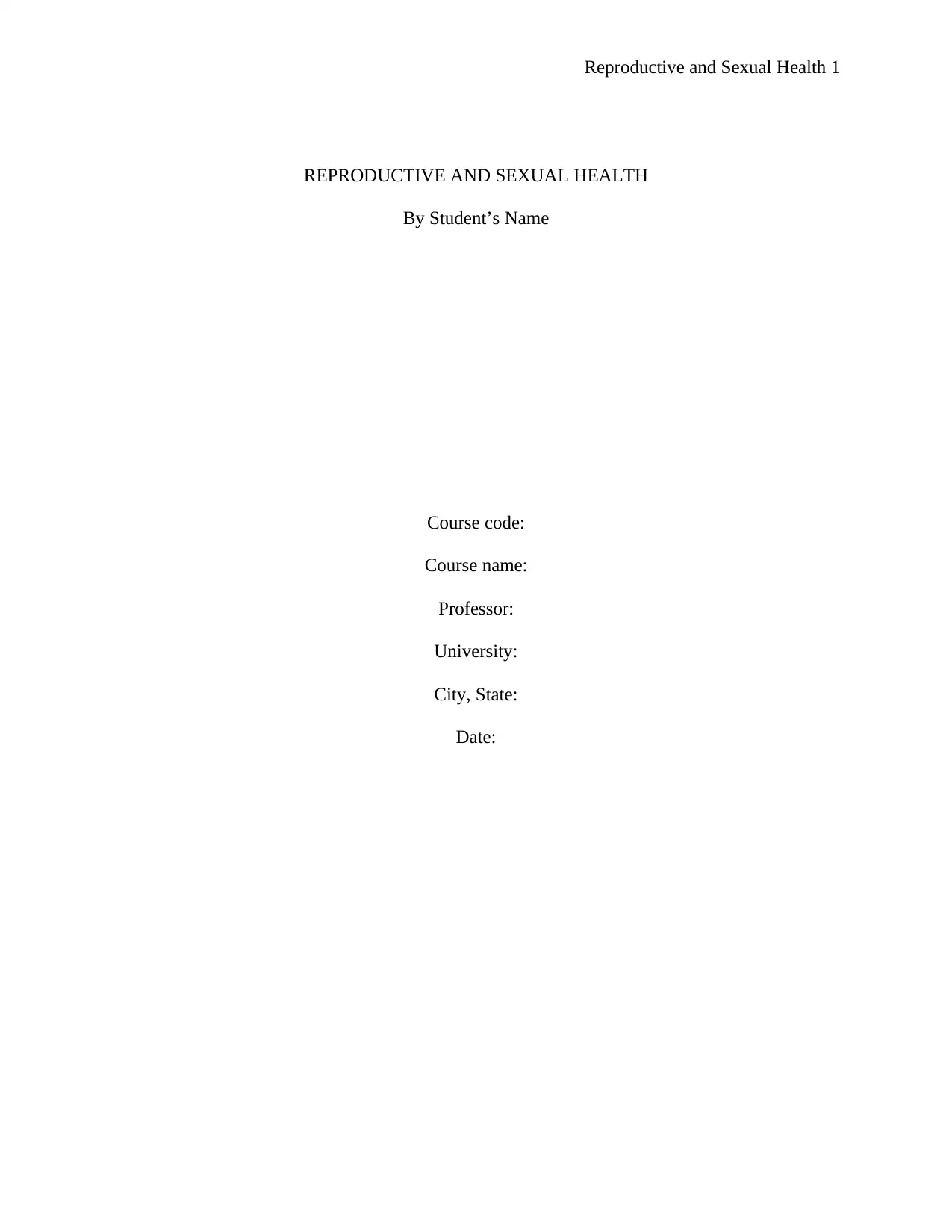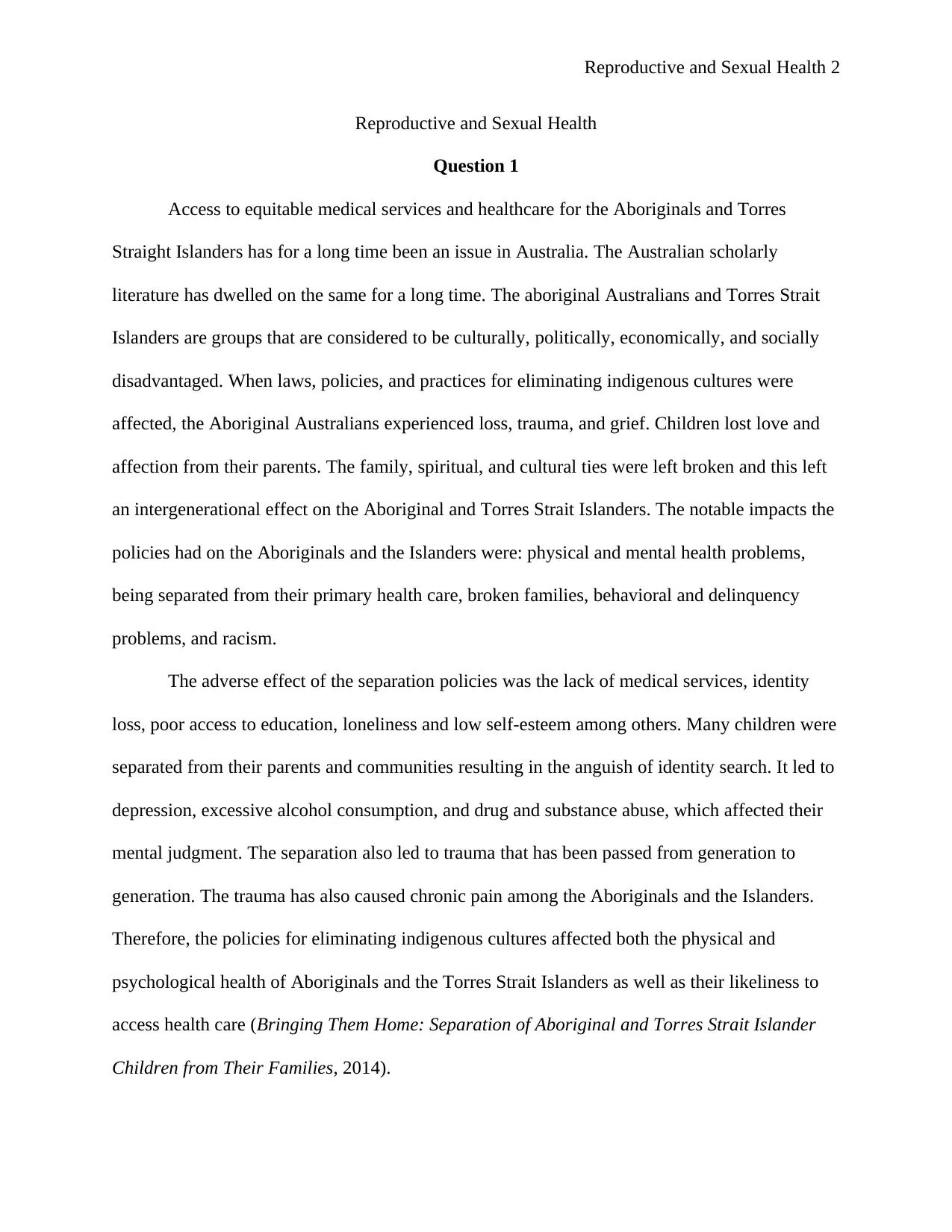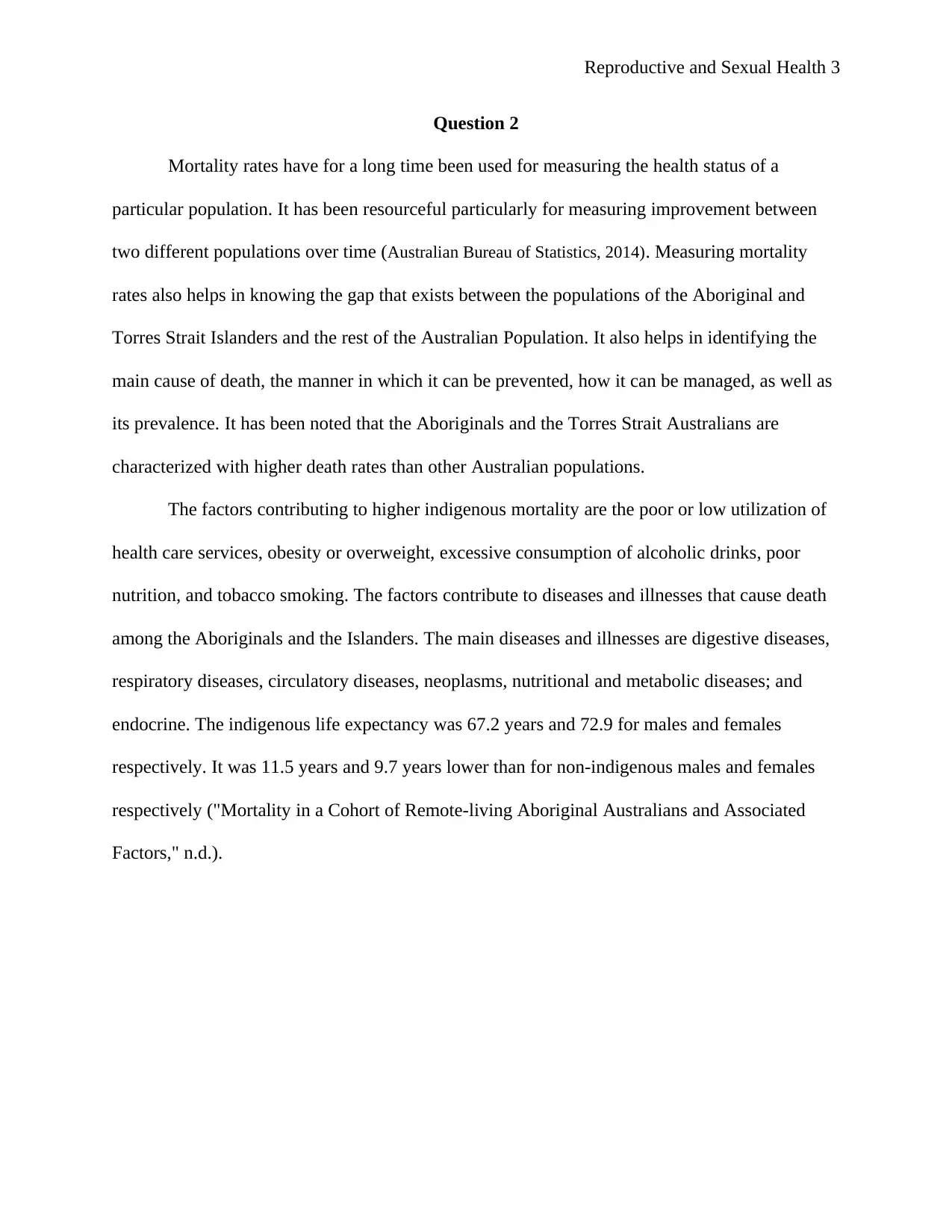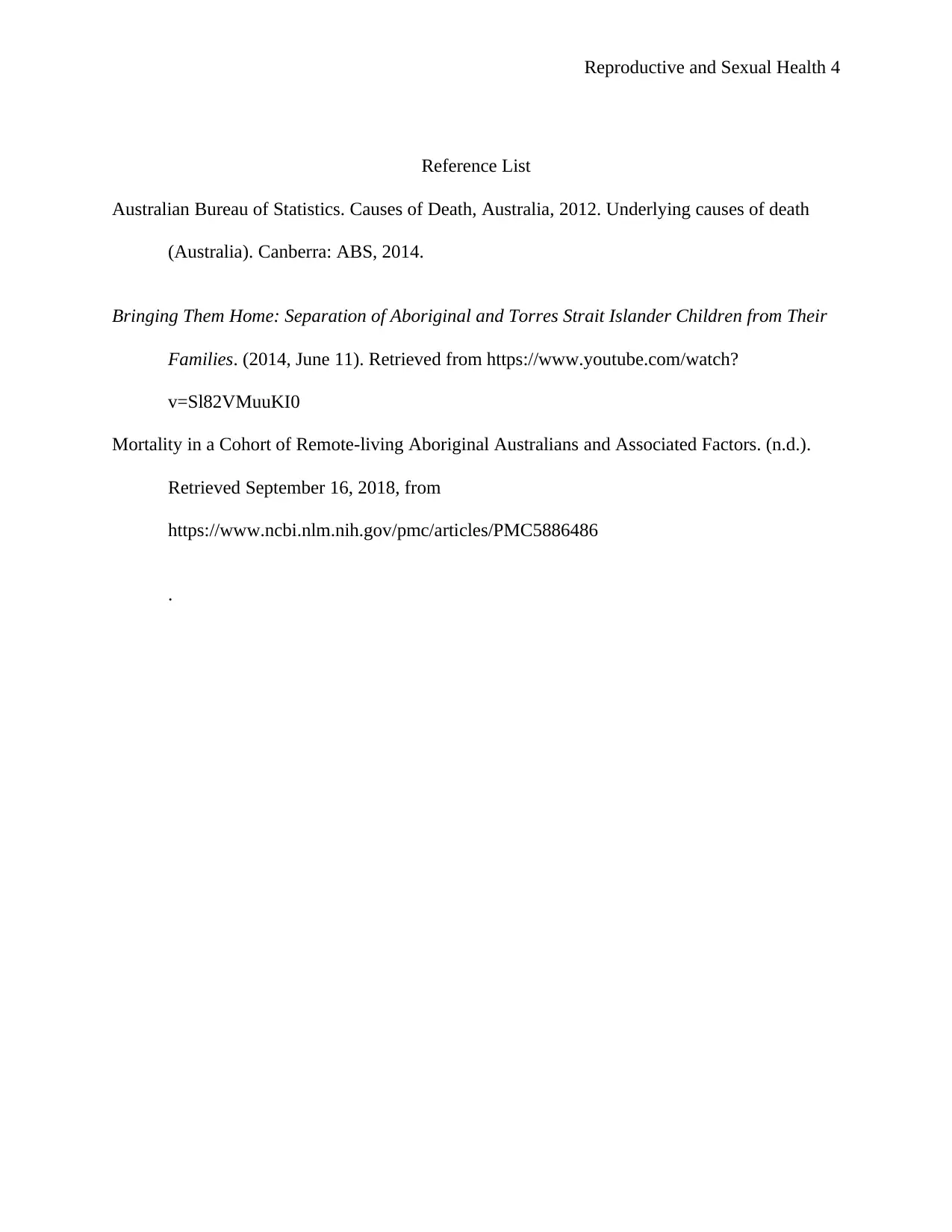Reproductive and Sexual Health Report: Aboriginal Health Issues
VerifiedAdded on 2023/06/05
|4
|698
|208
Report
AI Summary
This report delves into the critical issues surrounding reproductive and sexual health within the Aboriginal and Torres Strait Islander communities in Australia. It addresses the historical and ongoing challenges of equitable healthcare access, highlighting the adverse effects of past policies, such as the separation of families, which have led to significant physical and psychological health problems. The report analyzes mortality rates as a key indicator of health status, comparing the indigenous population's statistics with the broader Australian population and identifying contributing factors like poor healthcare utilization, obesity, substance abuse, and smoking. It explores the prevalence of specific diseases and illnesses, including digestive, respiratory, circulatory, and metabolic diseases, and discusses the significant gap in life expectancy. The report utilizes data from the Australian Bureau of Statistics and other scholarly sources to provide a comprehensive overview of the health disparities and challenges faced by these communities.
1 out of 4











![[object Object]](/_next/static/media/star-bottom.7253800d.svg)